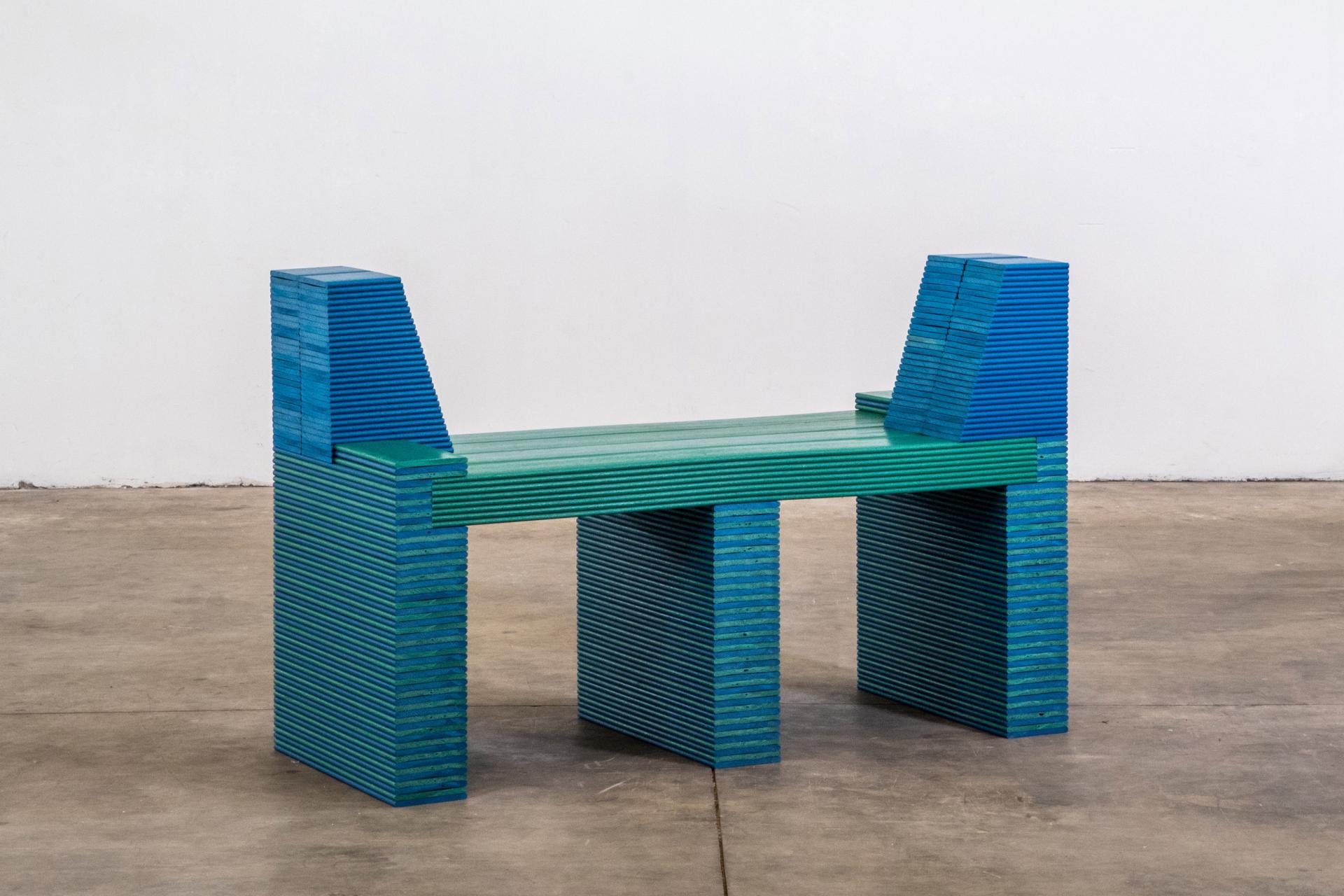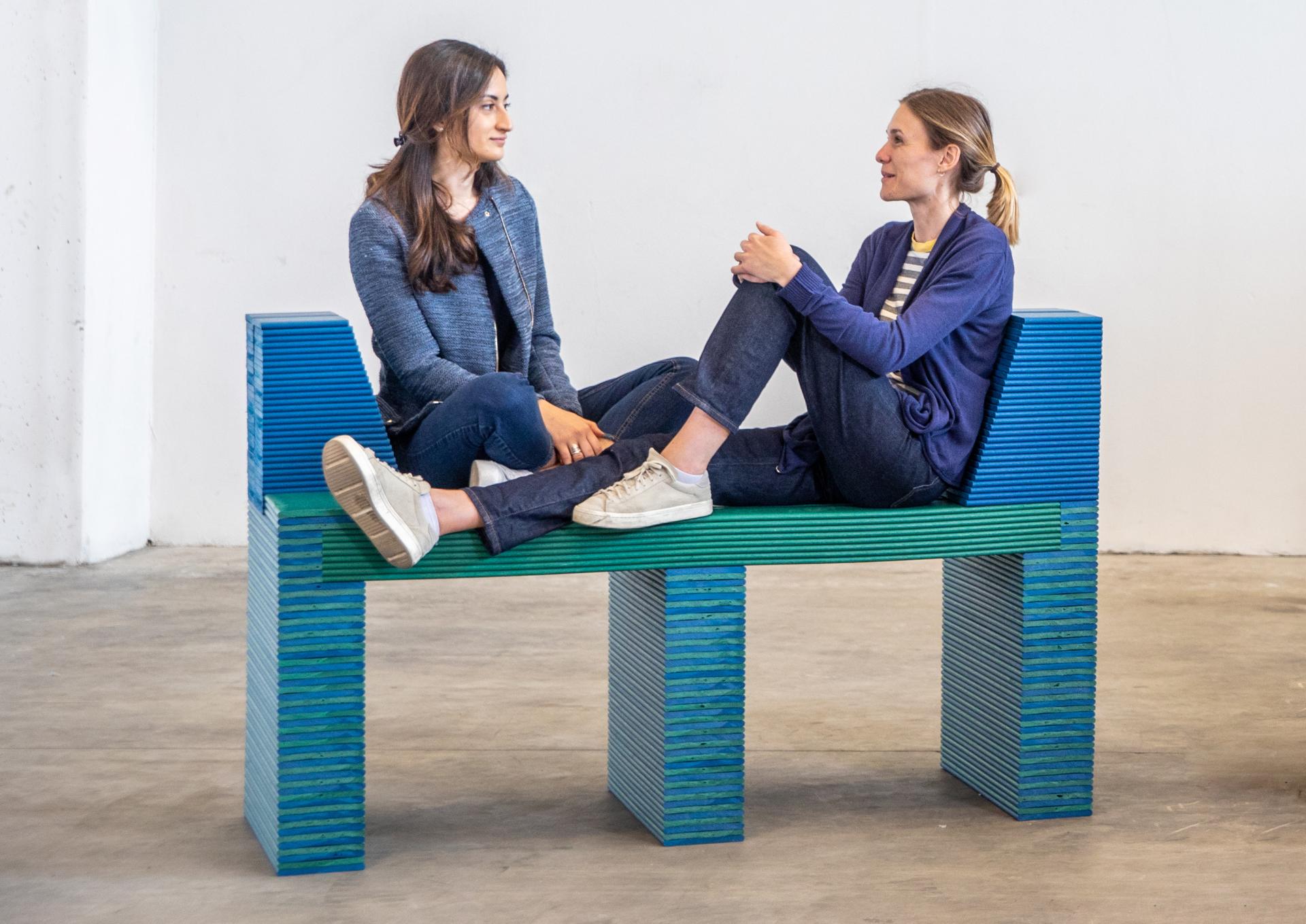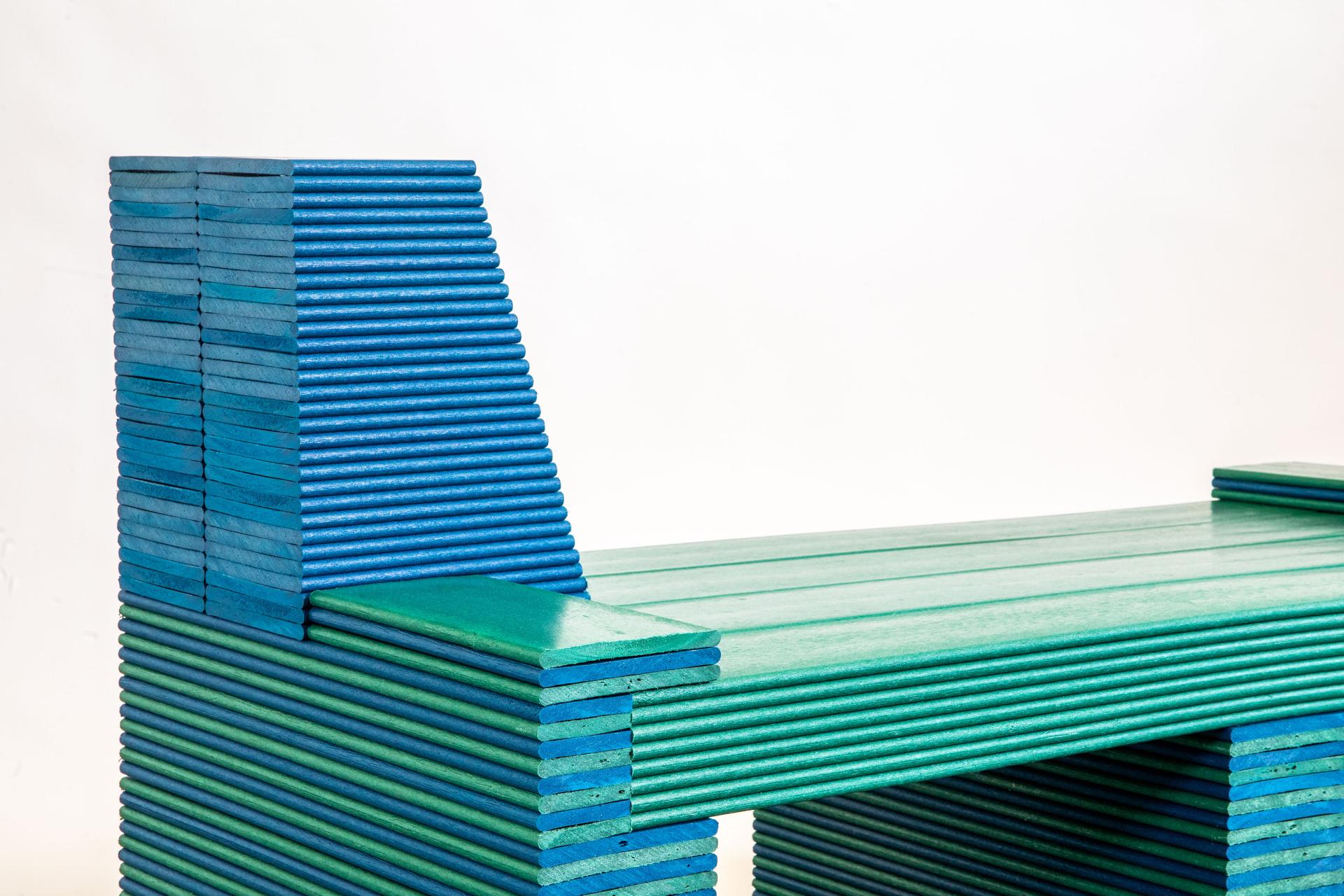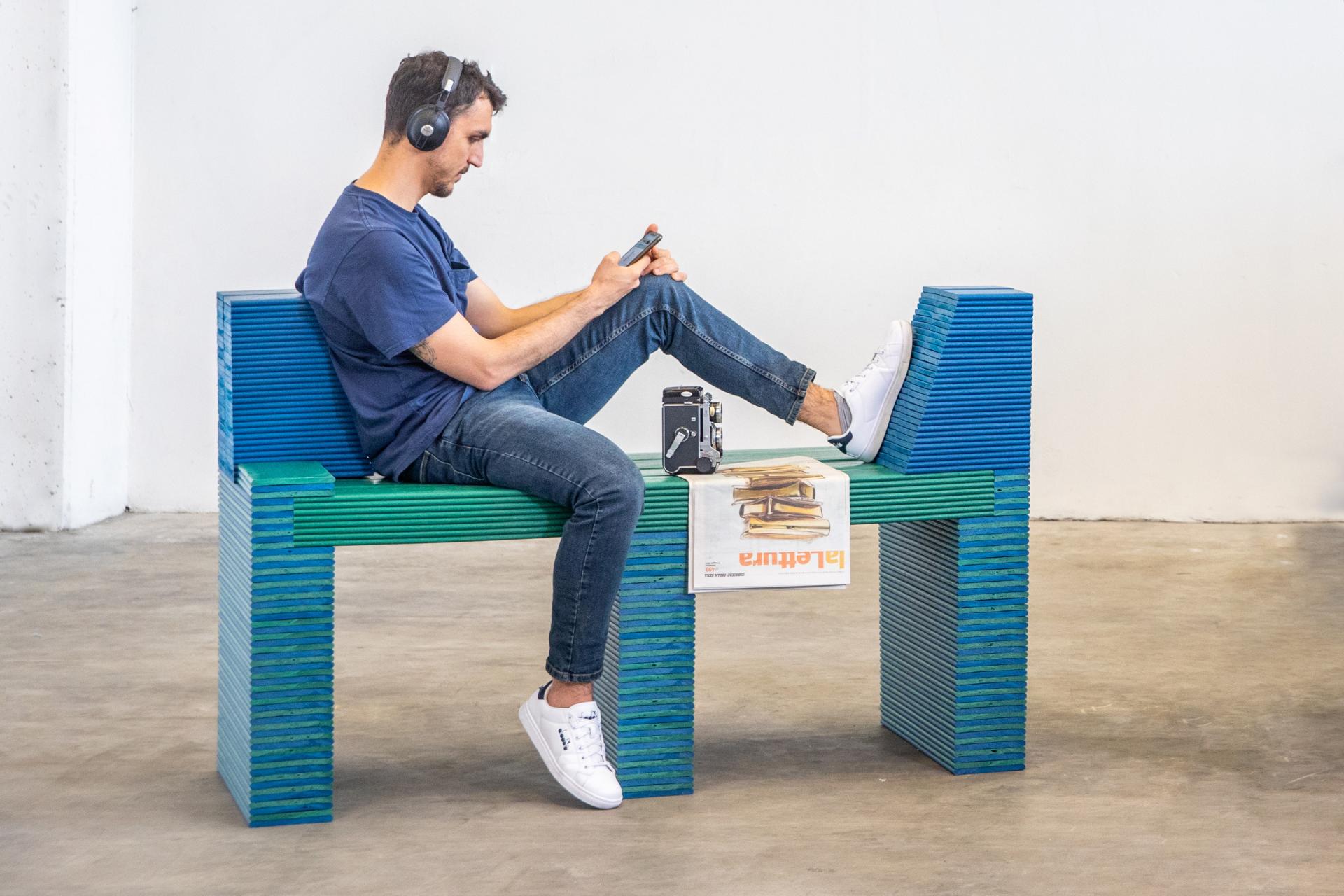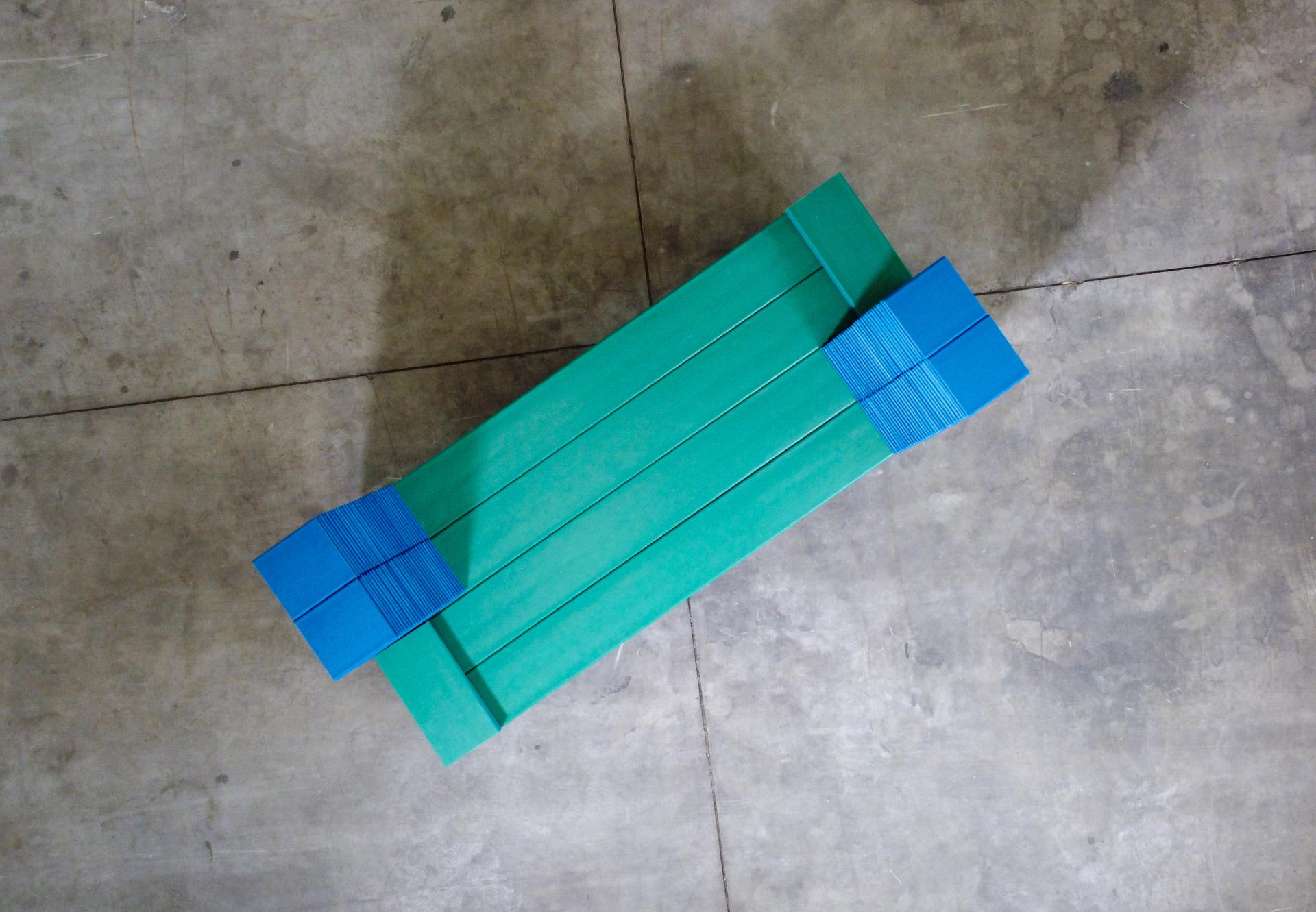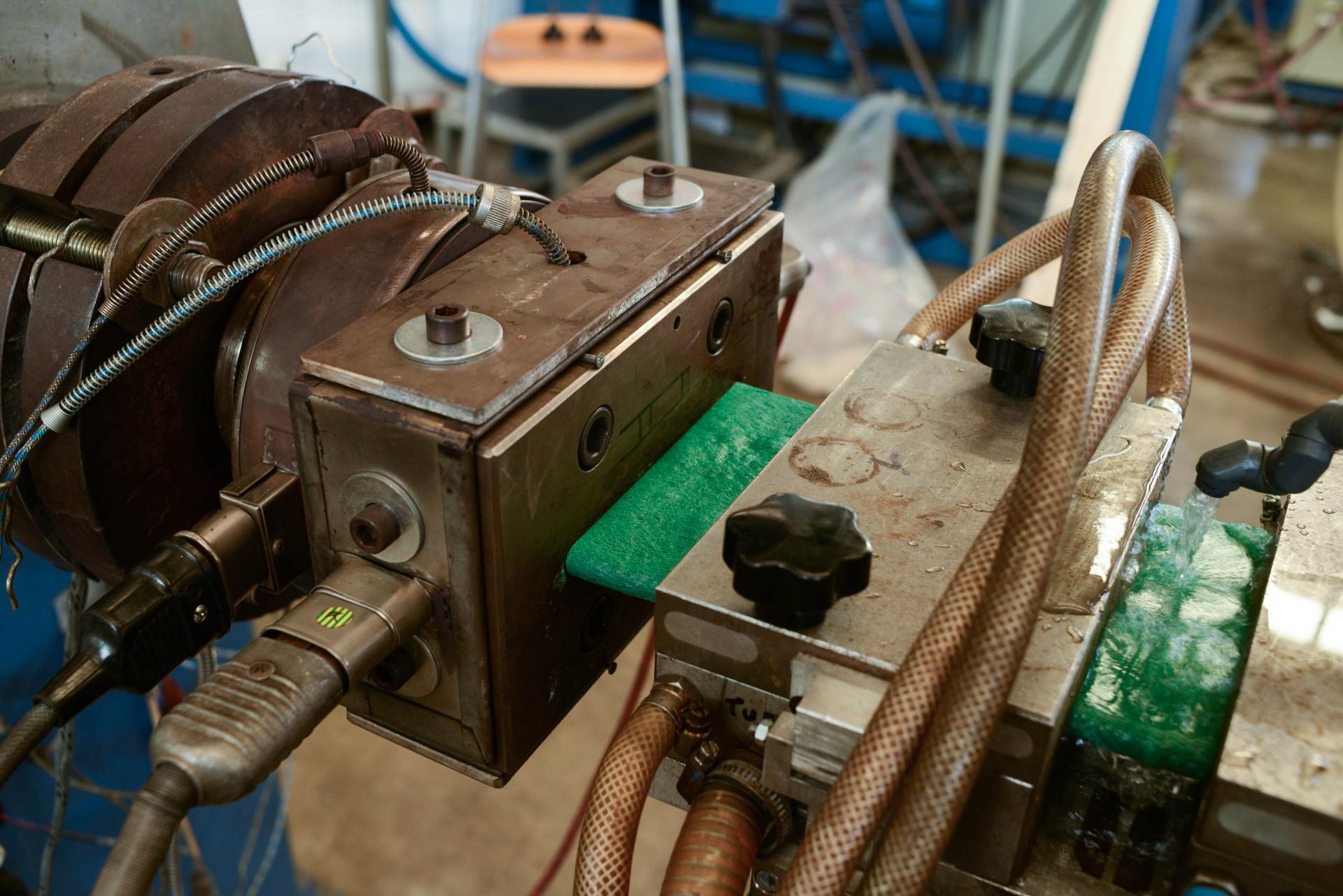P44
Basic information
Project Title
Full project title
Category
Project Description
P44 is an urban bench for public encounters, local connections, and sustainable interaction downright for humans and nature.
The furniture is designed for people to meet at and use, for local ecosystems to gain foothold and strengthen subsequently from a pandemic time, and essentially for people and nature to interact in longevity through the adaptation of circular thinking.
Geographical Scope
Project Region
Urban or rural issues
Physical or other transformations
EU Programme or fund
Which funds
Description of the project
Summary
The project was born from an European collaboration between two design studios - ProDe in Italy and Pistejaviiva in Finland together with local Italian companies.
P44 is an urban bench made out of 44,350 recycled plastic food and drink containers .
P44 demonstrates that today it is possible to convert municipal waste into social, economic and environmental value.
The bench contributes to "clean" our cities, to make local companies discover the strength of the circular economy, reducing the use of raw resources.
P44 is made of post-consumer recycled and recyclable plastic (100% EcoAllene®), which comes from polylaminate waste, more specifically from used food and beverage packaging such as Tetra Pak ones. In fact, 44,350 Tetra Pak type packages for food and drinks are used to create the bench P 44.
The furniture, a symbol of social encounter, becomes a vehicle for a message: the plastic is not, and should not be seen, as bad, but rather as good for the community as long as it is used in a smart way.
Key objectives for sustainability
P44 is based on a circular economy as it involves recycling existing waste, reusing recovered old tools and easy repairing of the final furniture.
Firstly, P44 is made of recycled polylaminate waste that comes from food and beverage packaging such as Tetra Pak ones. This post-consumer waste, abundantly present within the global everyday urban environment, is locally collected and then processed into a consistent and new material form called EcoAllene®.
The 100% post-consumer recycled plastic material EcoAllene® consists of a combination of polyethylene and aluminium. It has the parameters of a virgin plastic and can be used in traditional production plants without the need for plant modifications. To produce 1 kg of EcoAllene® you need 100 Tetra Pak containers of 1 liter - for example the milk container. In terms of energy saving and emission reduction, the Re-made in Italy certification issued by Bureau-veritas indicates 14.80 kwh/kg fossil resources reduction from regeneration and 847 gr co2 eq/kg global warming reduction from regeneration of the material.
Secondly, P44 construction concept is based on utilising existing plastic extrusion tools and profiles, usually used for other types of product. This approach avoids the production of new specific molds and shows the possibility of making new innovative products with existing standard equipment, thus reducing the pollution impact on the environment.
Finally, the furniture has been thought to be disassembled, repaired and reassembled again. In fact, the construction system avoids any glue. The extrusion pieces are stacked on top of each other and fixed together with standard bolts. Thus, each piece can be separated and recycled again. This easy disassembly enables a fully recycling process, making on one side the metallic bolts and on the other the recycled polylaminate that can be recyclable too.
Key objectives for aesthetics and quality
P44 is a playful and colorful bench. The furniture reflects the several seating, interacting, leaning, relaxing and playing possibilities.
P44 has two backrests which can be used in several ways such as small tables for reading a book or having lunch break, as armrest, as leaning support or in every other way up to the user’s creativity and need.
The extrusion pieces stacked on top of each other create solid and self-supportive columns and beams. These construction elements, created with repairable and replaceable extruded parts, can be seamlessly used to create a system of construction that follows simplified principles and has a distinctive visual continuity.
Within the recycled plastic material are present some aluminium flakes that give stronger technical properties (such as a major resistance to weather elements) and also a particular reflection and appealing effect.
The bench explores two different ways of approaching color: blocking technique and alternating technique. Color blocking is used to highlight the different components of the furniture and color alternating to highlight the layering system of the bench aiming to be bold and visually strong inside the urban environment.
The blue color and the green color of P44 are inspired by nature and stand out, but at the same time blend in with the urban environment.
The green color alternates with the blue blending into a third color, a teal blue, when the bench is seen from a certain distance.
Key objectives for inclusion
One of the key objectives of P44 is to offer sustainable urban solutions affordable and accessible to public spaces.
By using affordable recycled material and by reusing an old extrusion profile, we aim to offer sustainable urban furniture on the market with a price similar to a standard concrete bench.
The citizens of different cities have been interviewed and observed to better understand their needs when using public spaces and furniture. At the same time local companies, providing different types of manufacturing useful for the bench realisation, have been researched, found and connected in a network.
Infact P44 key aim is to empower the local companies and producers by providing them the possibility to reach new markets and giving them the opportunity of being part and creating a circular economy. The companies are supported by the designer and by each other, for a better and more effective communication of their work and product.
In fact, the final product goes along with a communication package available to all the stakeholders/ manufacturers. The package includes photos of the production process and the final product, as well as a full presentation of the project that can be used for their own portfolio.
The long-term objective is to get involved with other small and medium manufacturers on a local level for taking actions and creating work in different regions, reinvigorating communities even outside urban areas.
Physical or other transformations
Innovative character
Tetrapak packaging waste, daily produced by cities, is collected and transformed into new recycled raw material. Thus, this raw material called Ecoallene helps to decrease the environmental impact produced by waste and its disposal process. At the same time, it avoids the extraction and processing of virgin raw materials.
The Ecoallene material is then colored before being extruded, with colors that bring out its aesthetic and technical features, such as the presence of aluminium flakes.
Citizens are included in the design process through interviews and observation of the ways in which urban furniture is used, thus helping designers to create a useful, beautiful and innovative product for the whole community.
The components of P44 are then extruded and assembled, creating an aesthetic with a strong visual impact, easily recognizable in any urban space.

